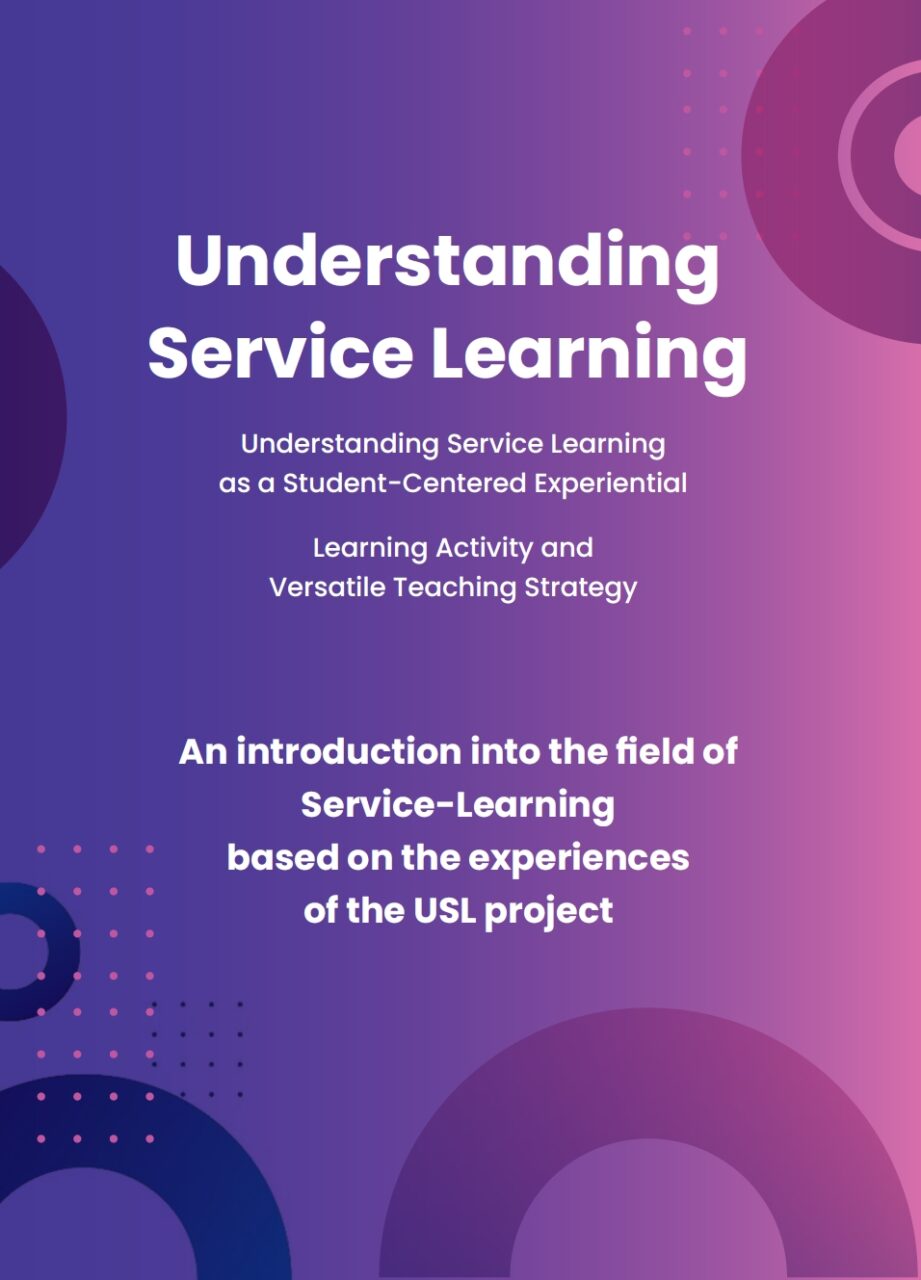As a teacher, learning about service-learning through the Understanding Service Learning project has been an enriching and enduring experience. It not only deepened my understanding of this methodology but also inspired us to integrate it into the curriculum for a new subject we have been developing. The hands-on approach of service-learning has made my lessons more engaging and relevant, bridging the gap between classroom learning and real-world challenges. Watching my students actively apply their knowledge to address common issues has been incredibly rewarding!
The Understanding Service Learning project at Deutsche Schule Athen explores integrating real-world service learning projects into the classroom. Starting as an Erasmus+ Small-scale Partnership, this initiative brought together schools, NGOs, and teacher-training experts from across Europe. The project’s success has expanded partnerships, inspired future initiatives, and established service learning as a vital part of the school’s education.
The ripple effects. You get to know so many people in these projects that other things begin to happen, perhaps completely unrelated. You discuss, you share ideas, and you find new opportunities for collaboration. And this is why there should be more of these projects.
We explored ‘Understanding Service Learning’ with its manager, Jens Koslowsky, delving into the project’s origins, development, and outcomes.
Please tell us more about your role in the project ‘Understanding Service Learning’.
My name is Jens Koslowsky, and I’m working at the Deutsche Schule Athen. I am not a teacher, but I coordinate our international activities, especially those involving Erasmus+ programs. This includes overseeing partnership projects, managing administrative aspects, proposal writing, reports, and communication with agencies – basically everything that takes the burden off the teachers so they can focus on teaching while ensuring that both teachers and students benefit from the European projects.
How did the project begin?
Some teachers at our school were developing a new curriculum focused on sustainability and Sustainable Development Goals (SDGs) for a subject called Global Learning. They felt that we needed to explore new ways of teaching for this subject, and someone suggested looking into service learning. This method sounded like it could fit perfectly, but the teachers didn’t fully understand it yet. I researched and contacted a German foundation, Stiftung Lernen durch Engagement, which already had a long-term experience promoting service learning. They were open to collaboration, so we decided to apply for an Erasmus+ Small-scale Partnership. The project aimed to introduce service learning to our teachers, provide training, and prepare them to implement the approach by the time the new subject started.
Did you contact any other organisations as well? What did your team look like?
We had a good mix of people with complementary expertise. In total, there were four organisations: our school Deutsche Schule Athen; Stiftung Lernen durch Engagement, who are the real experts on service learning; NUCLIO, a teacher training organisation from Portugal with extensive experience in open school projects; and one of the oldest and biggest NGOs here in Athens.
What activities did the project include?
We first brought colleagues, teachers to Berlin for an immersion workshop on service learning. We visited a school that has been implementing service learning projects for many years and talked to teachers and students there about their experiences. It was important for us not only to introduce our teachers to the theoretical concept but also to show them service learning in practice.
Then, we held training workshops throughout the year, usually with the same teachers, covering additional aspects of service learning – how to use design thinking and scrum methodologies, how to work with external partners, and how to convince other teachers to participate, since it’s difficult for one teacher to implement service learning alone. Reflection is crucial in service learning, so we also emphasised how a teacher can coach the students to constantly reflect on why things are moving in the right direction or not. We connected each of these training workshops with some networking events where we invited local
stakeholders, NGOs, other schools, and parents – basically everybody interested in hearing what service learning is. The idea was to build connections that would make it easier for us to implement service learning projects later on.
Finally, we created a publication – a handbook of our lessons learned throughout the year.
Project outcomes
The Understanding Service Learning project introduced over 40 teachers to the concept of service learning through workshops, school visits, and training events, all culminating in the creation of a digital handbook.

Digital handbook
A comprehensive resource featuring lesson plans, checklists, and tools to integrate service learning into classrooms, enhancing students’ civic engagement and social responsibility.
About the project
Supported by:
Erasmus+
EU Youth Programme Priority:
Participation in Democratic Life
Visibility:
The Understanding Service Learning project was widely promoted through its Facebook page. The digital handbook and project updates were shared with educators via social media, workshops, and partner networks.










